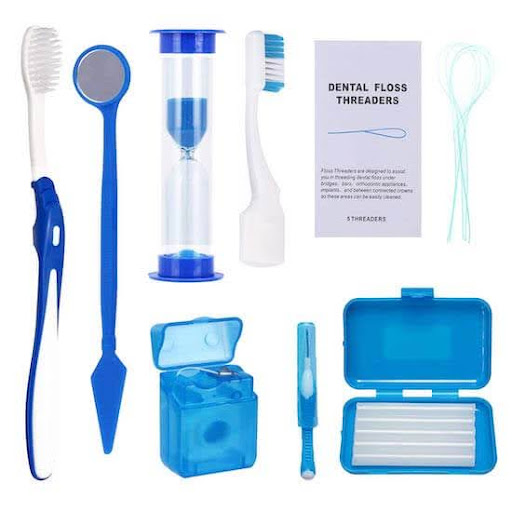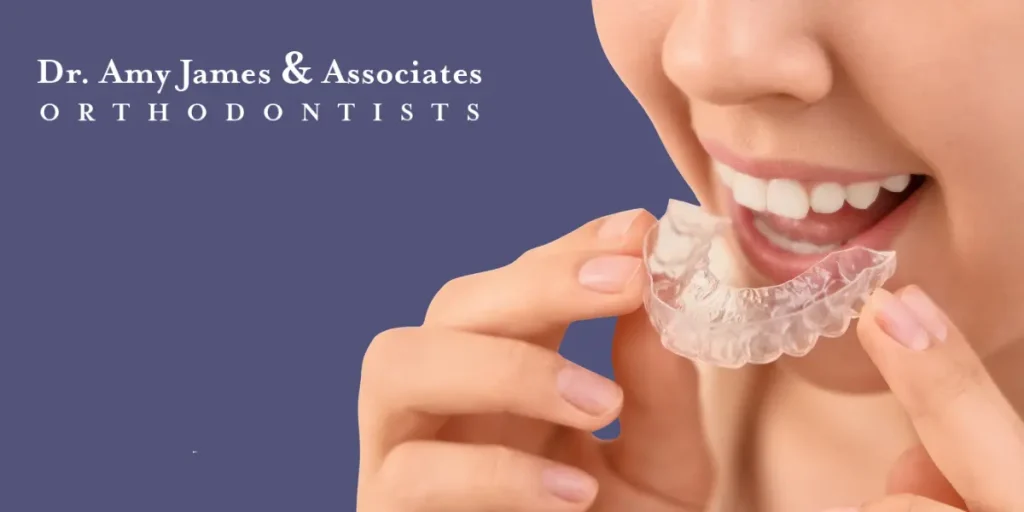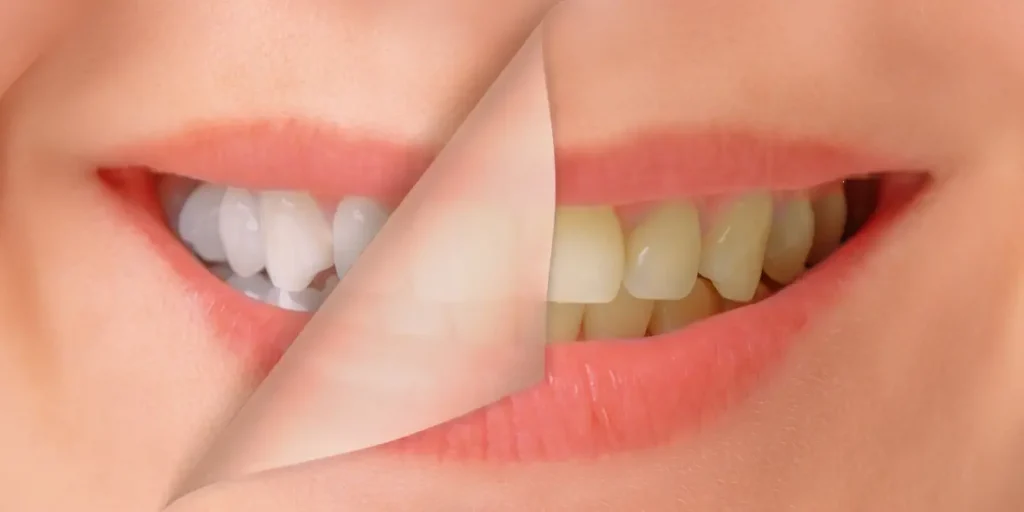Lingual braces are a popular choice for many seeking orthodontic treatment because they offer the benefit of being virtually invisible while effectively straightening teeth.
As you embark on your lingual braces journey, it’s crucial to have the right strategies in place for a successful first month. So, what exactly will you need to know for adjusting to lingual braces as comfortably as possible?
In this article, we provide valuable tips for your first month in lingual braces to help ensure you adjust comfortably and confidently during this critical period. We’ll cover tips suggested by our orthodontists for adjusting to lingual braces and how to take care of both your mouth and the braces themselves. We’ll also talk about the essential tools you need to have on hand at all times.
Tips for Adjusting to Lingual Braces
Here are some tips that will help make your first few weeks of wearing lingual braces as comfortable as possible:

1. Drink Water! In fact, drink about twice as much as your normal amount.
2. Eat soft foods for the first three days. Your mouth will be sore at first but after that, you can begin to eat more normally but take it slow.
3. Cut your food into small bites. Don’t tear food with your teeth.
4. Be careful biting into anything. It may feel different due to the braces and you don’t want to bite your tongue or the inside of your lips or cheeks.
5. You may not feel like it, but talk as much as you can (singing helps, too!). Lingual braces can make users lisp for a little while, but talking will get you past that as quickly as possible. Don’t worry, the lisp will not last forever.
6. Try not to play with the wire and brackets with your tongue. It’s difficult to control this at first, but the less you thrust your tongue, the less irritation will occur.
7. Rinse your mouth with warm salt water to promote healing.
8. Ask your orthodontist for a toothpaste for sensitive teeth. This can help while adjusting to your braces.
By using these tips, your mouth will adjust to the lingual braces as quickly as possible. If any pain continues or isn’t controlled with your pain reliever, call your orthodontist and ask for assistance.
Properly Caring for Your Lingual Braces
Now that you know how to get through your first few weeks with your braces, here are some tips for caring for lingual braces. After all, they represent a significant investment in both time and money, and you want them to last for the length of your treatment plan.

Avoid Foods That Can Damage the Wires and Brackets
Hard, crunchy foods will have to wait until the braces are removed. Chewing on these kinds of foods can easily damage the wires and brackets.
Eat Slowly
Aside from avoiding certain foods, it’s important to take your time chewing any food you eat. Everything in your mouth will feel strange at first, so you don’t want to bite yourself nor do you want to damage the metal pieces of the braces, either.
Chew slowly and pay attention to what’s happening in your mouth as you eat. If you feel something shift or break, you may be able to avoid further damage if you’re going slowly and can stop quickly.
Use a Mouthguard
If you play sports or engage in any activity that might result in a hit to the mouth, make sure to wear an orthodontic mouthguard. The mouthguard will absorb the impact and save the braces as well as your teeth.
Don’t Chew on Objects
If you have a habit of chewing on pens, pencils, or other objects, stop! Hard objects like this are even worse than hard foods.
Promptly Contact Your Orthodontist When Needed
If a wire or bracket breaks or comes off, call your orthodontist and ask what you should do. Don’t try to take care of it yourself. You may make the situation worse.
By following the tips we’ve covered above and taking extra care, your braces will last as long as they are needed.
Tools to Help Properly Maintain & Protect Lingual Braces
In addition to your regular toothbrush and floss, there are some other essential tools you should always have on hand:
Orthodontic Wax
Also called dental or braces wax, this wax is used to provide a barrier between the braces and the soft tissues in the mouth. It can be used as much as necessary but try during the first few days after your braces are put on to let your mouth get used to the metal and wires without the wax. This will allow the soft tissues in your cheek and lips to build up more of a tolerance.
Bite Turbos
Bite blocks known as bite turbos prevent your upper teeth and lower teeth from touching. These can help until your mouth adjusts to the braces and prevent you from biting the sensitive tissues in your mouth.
Water Flosser and/or Interdental Brushes
In addition to regular flossing, you will need either a water flosser or an interdental brush. Bits of food can become trapped in the wires behind the teeth and the brush or water flosser works better at reaching those out-of-the-way spots.
Over-the-Counter Pain Relief Medication
Make sure to have this on hand before you need it and take it as directed when necessary. As your mouth gets used to the braces, you will need a pain reliever less every day.
We Are Happy to Be Your Trusted Local Experts in Lingual Braces
Lingual braces are a great choice for those who need the least visible type of braces. They do attach to the back of the teeth, which requires some adjustment with speaking and cleaning.
Similar to any braces, the first few weeks can be managed by following the tips we’ve covered above and having a few basic items on hand: Over-the-counter pain reliever, braces wax, a water flosser, and an interdental brush. You can help ensure that the braces will last throughout your treatment plan by avoiding hard, crunchy foods and other objects and getting assistance when needed.
Lingual braces are the most aesthetic braces option and our orthodontists here at Dr. Amy James & Associates are some of the only ones in the Haddonfield, Voorhees, Marlton, and Morristown areas that offer them. Our goal is to provide the highest-quality care to all of our patients and ensure that each gets the beautiful smile they deserve.
Contact us today with any questions you may have regarding lingual braces or to schedule an appointment.




